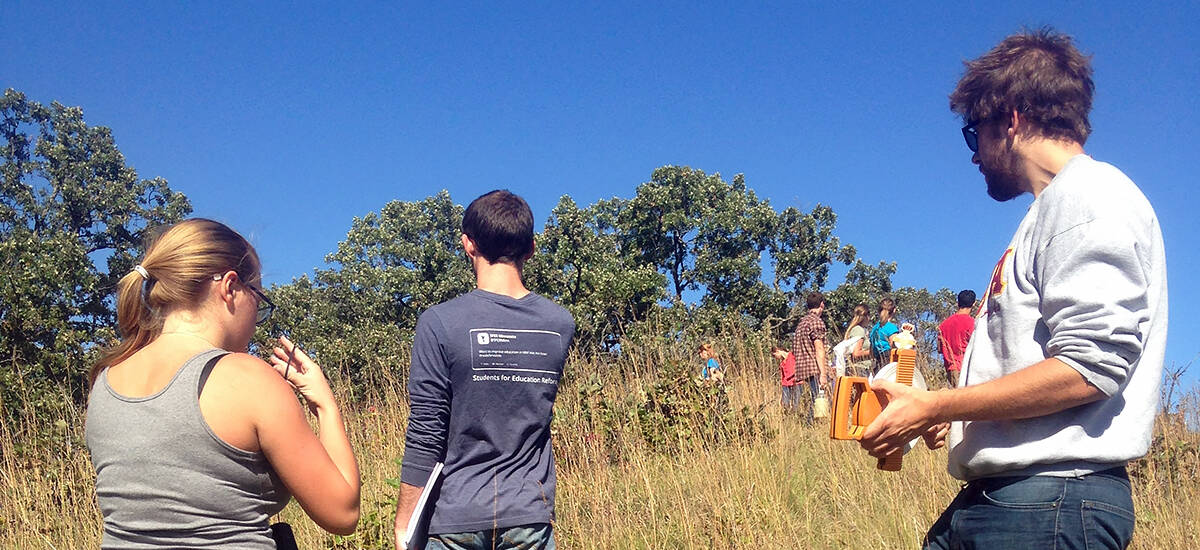Environmental StudiesEnvironment, Geography, and Earth Sciences
In Environmental Studies, we believe that we can create a more just and sustainable world by drawing together knowledge and insights from many disciplines and areas of study. We strive to learn from history, the natural sciences, the social sciences, theology, the arts and the world’s great thinkers to find solutions to the enormous environmental challenges of our time.
An Environmental Studies student will take courses from a broad range of professors across the College. In addition, our students often engage in activities like sustainability internships, science research assistantships and advocacy experiences. Furthermore, Gustavus offers an astounding array of sustainability-related study abroad programs -- in India, Sweden and Malaysia -- and encourages students to seek out their own study abroad experiences if they prefer.
We live on a planet where living things exist with the air, water, soil and rocks in complex and ever-changing relationships. Humans have become the most powerful force on the planet, changing the environment in ways both small and large. In Environmental Studies, we work together to prepare students for careers that can help humanity live better in this place we call home.
Program Features
- Environmental Studies (ES) students have initiated major sustainability projects on campus like the Big Hill Farm. Big Hill Farm is an production garden on campus that is organized and operated by students. It supplies produce to the school cafeteria, and offers students hands-on experience in agriculture, marketing, and management.
- ES students help evaluate and promote other campus sustainability initiatives. For example, students have led tours and held educational outreach events to help teach the campus about our solar panels and food composter, thereby gaining experience in environmental education and public outreach. And, students help monitor those systems, thereby gaining experience in the operations of these technologies.
- The Environmental Studies major includes courses from a broad range of departments while also requiring a focus in a particular area. This interdisciplinary approach allows ES majors to explore diverse interests while developing strong environmental background knowledge in science, policy, literature, and philosophy. Many ES majors pursue additional depth through a major or a minor in another discipline.
- Many ES students gain a broader environmental perspective and skills by studying abroad. The flexible major program allows students to complete the major in four years even if they spend a semester studying abroad.
- ES students can collaborate with faculty on research during the school year and through summer research projects. The ES program supports student-faculty research through advising and mentoring, and has its own fund to support student research. Past projects have included making documentary films, measuring water pollution, mapping landslide hazards, prairie restoration research, and renewable energy.
